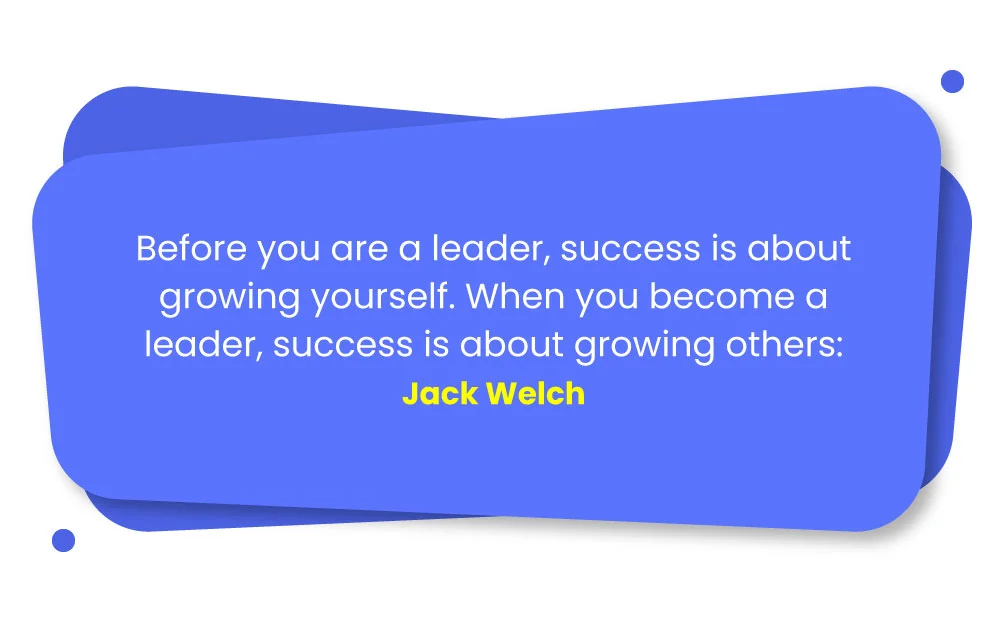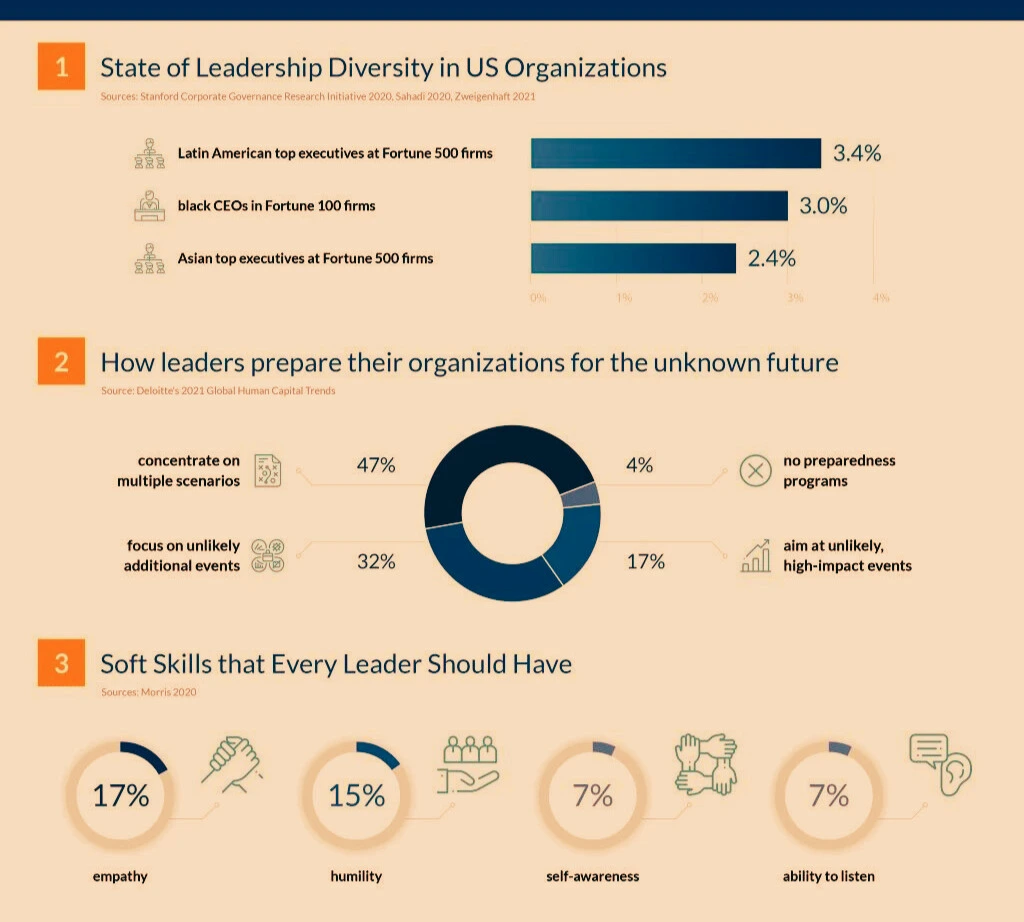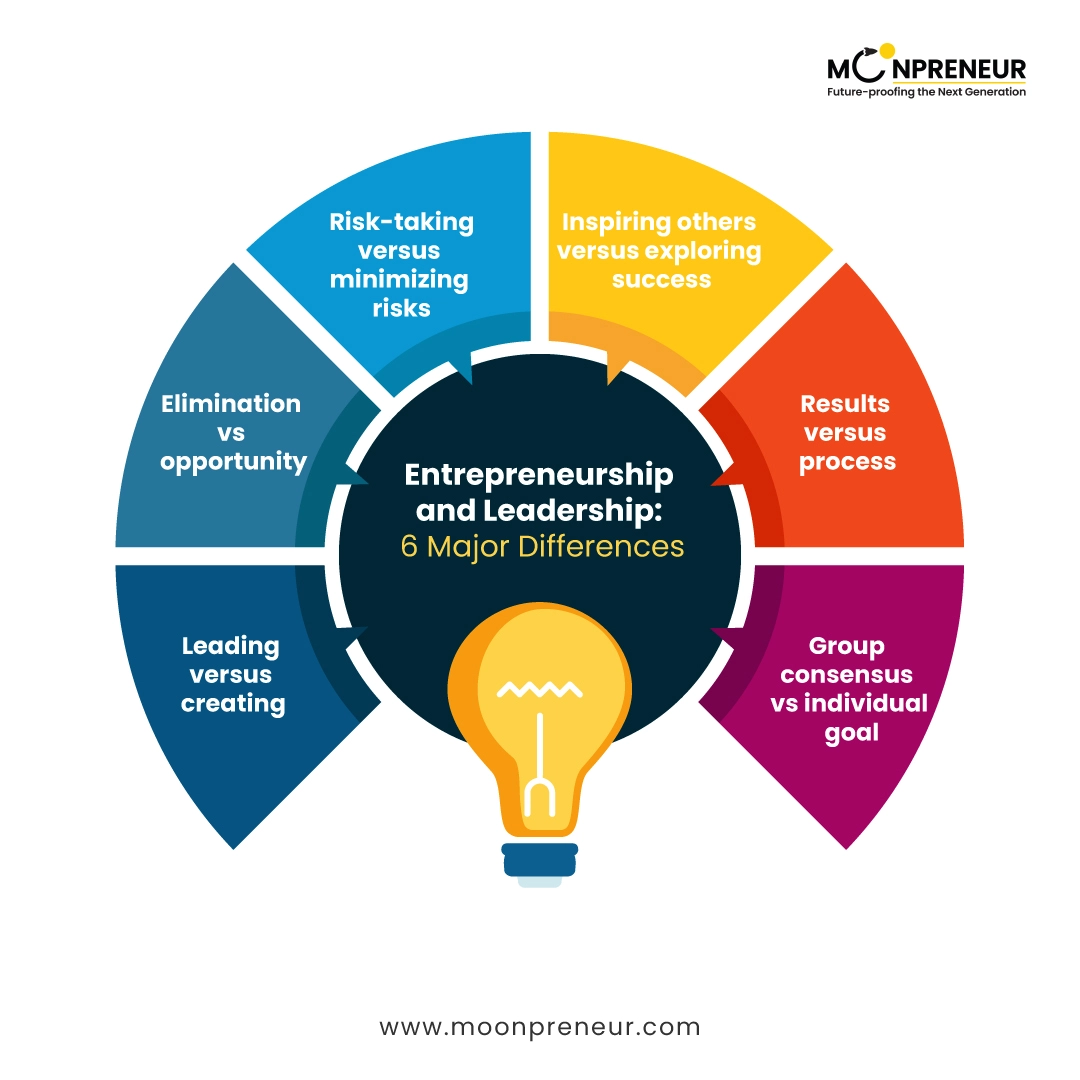

This quote by Jack Welch, the CEO of General Electric from 1981 to 2001 and author of several best-selling books, including Winning, very simply yet effectively distinguishes between entrepreneurship and leadership.
Update: This article was last updated on 1st August 2024 to reflect the accuracy and up-to-date information on the page.

Entrepreneurship and leadership are two common but distinct concepts often confused. The common understanding and usage of the terms are often flawed as the dissimilarities between both concepts are often overlooked. The difference between an entrepreneur and a leader lies in vision and execution; entrepreneurs innovate, while leaders inspire and guide

What is entrepreneurship?
Entrepreneurship is developing and managing a profitable venture by identifying scalable opportunities in the market. It is also understood as the most significant productivity factor for an enterprise as it involves optimal utilization of all other factors of production.
What is leadership?
Leadership, on the other hand, is the capacity of a person to bring together a group, influence, motivate, and guide them toward achieving a common goal.
Recommended reading: How To Start With Entrepreneurship- Hear From Ken Burke, A Serial Entrepreneur

Entrepreneurship vs Leadership
| Entrepreneurship | Leadership |
|---|---|
| Entrepreneurs are creators | Leaders are navigators |
| Entrepreneurs turn problems into opportunities with solutions | Leaders eliminate problems with solutions |
| Entrepreneurs are risk-takers | Leaders minimize risks |
| Entrepreneurship is about scaling success | Leadership is about inspiring others |
| Entrepreneurial success is based on outcomes | Leadership is about execution |
| Entrepreneurship is about individual choice | Leadership is about team satisfaction |

Differencee
Entrepreneurs and leaders both require vision, creativity, and strategic thinking. However, the approach to go about it is different in both cases.
1. Leading versus creating:
While leadership is more about guiding an existing organization toward success, entrepreneurship focuses more on creating and building a profitable business.
2. Elimination vs opportunity:
The leaders emphasize eliminating the problems with a solution, whereas an entrepreneur seeks the issue as an opportunity. The entrepreneur comes up with solutions that can be presented as profitable products or services.
3. Risk-taking versus minimizing risks:
Entrepreneurship often involves susceptibility to take the extra bit of risk. Entrepreneurs are, by nature, braver in decision-making and risk assessment and uphold principles like the higher the risk, the higher the reward. While leadership involves minimizing risk factors and making informed decisions.
4. Inspiring others versus exploring success:
A true leader is not defined by success in attaining the goal but by his ability to inspire more people to commit to the cause and work towards success. What defines the entrepreneur is the scale of his/her success.
5. Results versus process:
The journey of an entrepreneur is rated based on the output results rather than the process. On a leadership aspect, the execution and process are validated to outweigh the results.
6. Group consensus vs individual goal:
Another notable factor that differentiates leadership from entrepreneurship is the consistent necessity to please the whole group on an individual basis. Leaders are often put in stressful situations to make difficult choices acceptable to all parties involved. Entrepreneurship does not entitle you to the responsibility to please every party; instead, the emphasis is on achieving the desired goal.
While both these are considered crucial aspects for the success of an enterprise, it is safe to assume, in reality, leadership is a subset of entrepreneurship. Undoubtedly, a strong sense of leadership is the kind of quality in an entrepreneur that comes with certain perks that improve results. The loyalty and commitment that comes as the upsides of strong leadership are on top of the list of such perks.
Conclusion
In summary, leadership being a subset of entrepreneurship establishes grounds for the assumption that an experienced and successful entrepreneur can be a quality leader. However, this need not always be the case. It can also be established that it takes more than just leadership to be an entrepreneur. Leadership can be challenging because of the necessity to satisfy all individuals, whereas entrepreneurship poses challenges with complexity and unpredictability.
Both concepts are interrelated in so many ways but they both require different skill sets and approaches that distinguish them as two separate notions.
Moonpreneur is on a mission to disrupt traditional education and future-proof the next generation with holistic learning solutions. Its Innovator Program is building tomorrow’s workforce by training students in AI/ML, Robotics, Coding, IoT, and Apps, enabling entrepreneurship through experiential learning.

























Successful entrepreneurs and leaders must have something in common, can you tell me what?
One piece of advice for aspiring entrepreneurs and leaders: Never give up on your dreams. Entrepreneurship and leadership are not easy, but they are incredibly rewarding. If you have a vision for something new, go for it!
Are there any determined steps I should follow to become a successful entrepreneur?
If you are genuinely interested in becoming an entrepreneur, you should follow these steps: